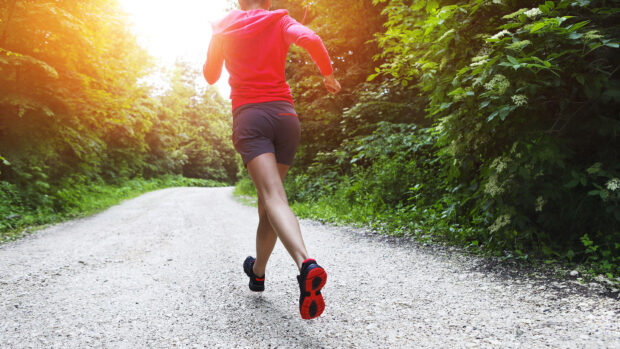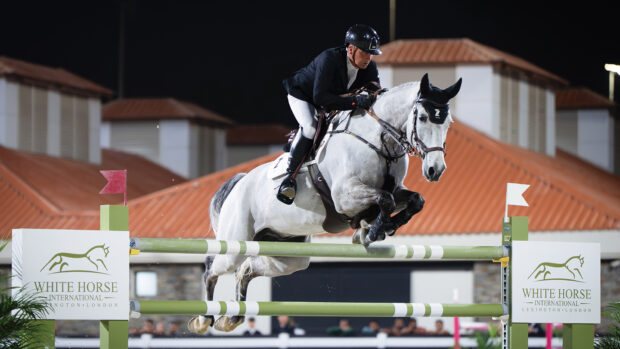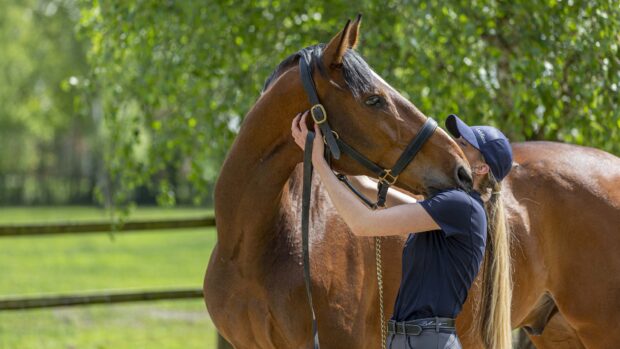Showjumping commentator and broadcaster Adam Cromarty on why “getting on with it” is no longer a healthy mindset
Next month is the UK’s mental health awareness week (12–18 May). This year, the theme is community.
We’re lucky that the world of showjumping has a huge sense of community. Whether our sport takes you a few miles from home or around the world, you don’t have to look too far to find a friendly face. No matter the level of competition, no one is dismissive if you ask for an opinion about a line or a distance.
With the widely discussed social licence issues our sport faces, we need to protect our community. We all have our part to play, and I feel British Showjumping is ahead of other national federations when it comes to evolving rules with this in mind.
It’s widely accepted that social media is an incredible tool. At no other time in history could you press a button and have the potential to reach a global audience, free of charge.
For many reasons, it’s so important to be careful of what and where we post. Things can turn quickly from being a useful discussion to a less constructive blame game or witch-hunt. It can be detrimental to the sport and have the potential to damage individual careers or businesses.
Being kind and accountable should be a focus whether in person or online. The online disinhibition effect describes how people feel free and less restrained when interacting online. We are more likely to open up about issues and to offer help to strangers.
The lack of physical presence and, in some cases, a detachment from reality mean we can speak our mind without much thought about the consequences.
As someone who was diagnosed with attention deficit hyperactivity disorder (ADHD) during Covid, the brain has become a real hyper-focus for me. While no data exists, I think the horse world likely has a disproportionately high number of neurodivergent members. The mix of routine and variety is attractive to “neurospicy” minds.
Positive mental habits
“Just get on with it” was an equestrian mantra for decades. However, many top equestrian athletes are now working with sports psychologists to improve their performance. I think this number is only going to increase, and with very good reason.
For some riders, tackling one specific issue, such as fear, may be the motivation to explore sport-related mind coaching. This is probably one of the most common.
Although there is no magic wand, there is a set of skills to learn that can help you reframe nerves by building confidence through preparation, positive mental habits and knowing how to recover from a mistake without spiralling.
Something I’ve heard a lot of riders have success with is visualisation when walking the course. These masterful minds aren’t out there just walking, they are visualising (while walking).
Imagining what it will look and feel like to ride that perfect rollback turn. Picturing the feeling of closing their fingers around the reins to take a check down a distance. These vivid thoughts get the neurons firing and can be a useful preparation tool.
We’re stuck with the brain we have, and investing time into building a toolkit to help with our performance could be life-changing. No matter how important the competition, imagine standing at the in-gate being completely present in the moment, focused on the task in hand and able to cope with whatever happens in there.
Fuelling our brain is important too. It’s difficult when I’m at shows abroad, but when I’m home, I try to cook as much as I can from scratch. I know it sounds boring, but I do feel better.
I used to drink alcohol socially and although I don’t claim to have stopped altogether, I am mindful of my consumption. A new study in the journal Neurology suggests that eight alcoholic drinks per week can lead to an increased risk of brain injury.
For some this is a topic that raises a dismissive eyebrow. I may have been part of that group in the past. Now, I think that an athlete’s mind could be the difference between being on or off the podium.
Clear minds help with clear rounds. I may trademark this; anyone know a good T-shirt printer?
● What has been your experience around maintaining a healthy mindset? Let us know at hhletters@futurenet.com, including your name, nearest town and county, for the chance for your letter to appear in a forthcoming issue of the magazine
- To stay up to date with all the breaking news from major events throughout 2025, subscribe to the Horse & Hound website
You might also be interested in:

‘A horse needs to feel like a conquering king’: why Matt Sampson’s showjumpers want to perform for him

Coming to cinemas, Olympic gold medallist Nick Skelton stars in an inspirational story of ‘passion and perseverance’: ‘I hope it will be good for the sport’

‘Mud on his boots and sunlight in his soul’: equestrian world mourns true horseman who died after warm-up fall

Subscribe to Horse & Hound magazine today – and enjoy unlimited website access all year round




